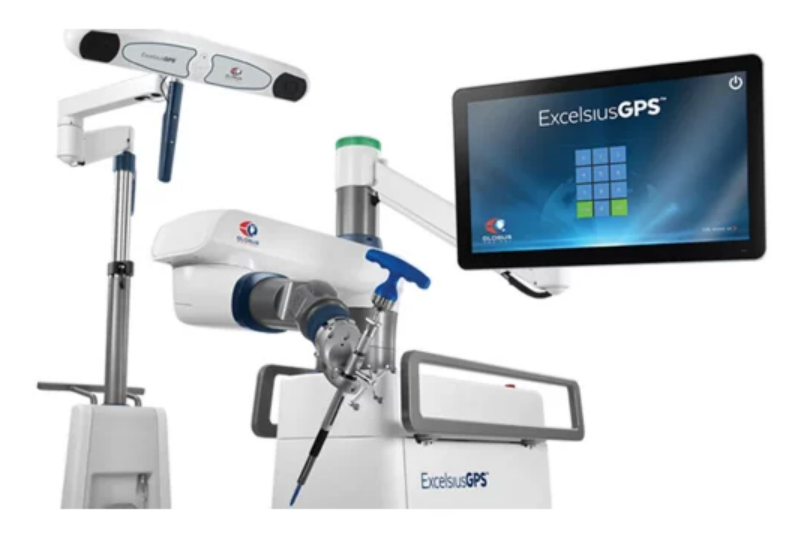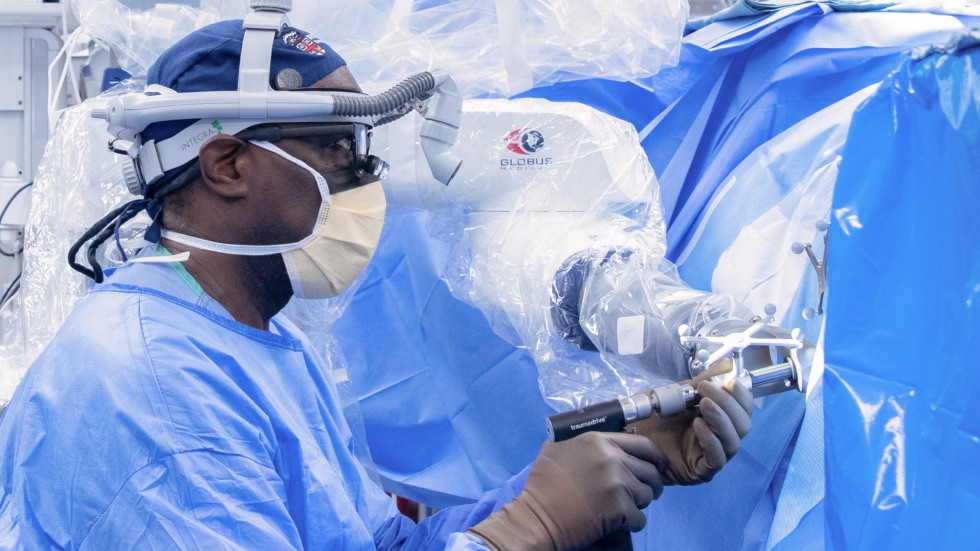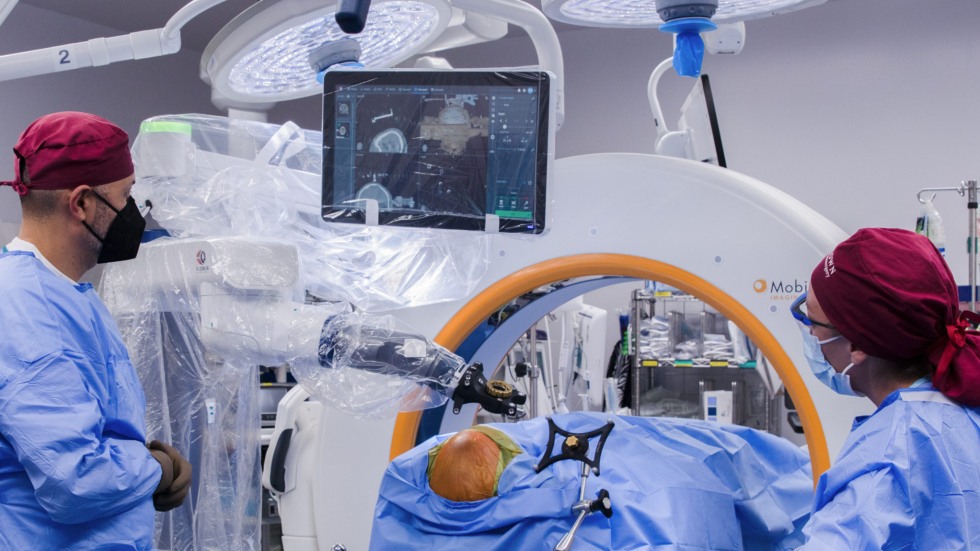Technology
 Neurosurgical robots are tools that help guide the surgeon to particular targets in the brain and spine. They do this with millimeter-level accuracy, and therefore contribute to the efficiency, safety, and success of neurosurgical procedures. With these tools, neurosurgeons can place probes to sample tissue or fluid, electrodes for recording or stimulating brain circuits, and fixation devices to stabilize spine injuries.
Neurosurgical robots are tools that help guide the surgeon to particular targets in the brain and spine. They do this with millimeter-level accuracy, and therefore contribute to the efficiency, safety, and success of neurosurgical procedures. With these tools, neurosurgeons can place probes to sample tissue or fluid, electrodes for recording or stimulating brain circuits, and fixation devices to stabilize spine injuries.
Who can benefit
Patients undergoing neurosurgical procedures for epilepsy, brain tumors, movement disorders, spine surgery & psychiatric neuromodulation may benefit from this technology.
How it works
The neurosurgeon first uses pre-operative imaging (MRI or CT) to design a surgical plan with the required targets and trajectories. Then, most typically, intra-operative neuro-imaging is used to align the surgical plan with the patient’s position in space using a 3D computer vision system and special reference markers attached to the patient. When the surgeon is ready to introduce the probe or device, the robot moves to align a guide to the selected trajectory, with the precise angle and distance needed. The surgeon can then work through this guide with real-time feedback regarding potential deviations from the desired trajectories. This system therefore supplants older technology that required complex calculations to arrive at specific targets, improving accuracy, efficiency and safety.

